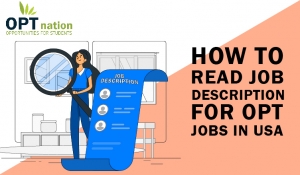A world where digital transformation is revolutionizing how we learn, chemistry—often considered one of the more challenging sciences—is now more accessible than ever. With the rise of online chemistry courses, students, professionals, and lifelong learners can explore the complexities of atoms, reactions, and molecules at their own pace, from the comfort of home. These digital platforms don't just replicate traditional education—they enhance it with interactive tools, virtual labs, and a variety of learning styles tailored to each student.
The Digital Shift in Science Education
The internet has changed the game for education, breaking down barriers of time, geography, and cost. For chemistry—a subject typically reliant on in-person labs and lectures—this shift was once seen as a challenge. Today, it's a thriving opportunity. High-quality video lessons, dynamic simulations, and digital assessments have bridged the gap, offering experiences that rival or even surpass traditional classrooms.
Digital learning platforms are especially beneficial for:
-
High school students needing tutoring or enrichment
-
College students balancing course loads or working part-time
-
Adult learners returning to school or switching careers
-
Homeschoolers seeking quality STEM content
Why Chemistry Is Perfect for Digital Learning
At first glance, chemistry seems like a difficult fit for digital platforms due to its reliance on hands-on experiments. However, technology has evolved to meet these challenges with:
Interactive Simulations
Virtual labs allow learners to conduct experiments without needing a physical lab space. These simulations are safe, repeatable, and help visualize concepts such as titration, reaction kinetics, and molecular structure.
Animated Content and Visual Aids
Animations help students understand abstract topics like electron configuration, orbital hybridization, or thermodynamics. These visuals are often more effective than static textbook diagrams.
Immediate Feedback
Online quizzes and problem sets offer instant feedback, helping learners correct misunderstandings and reinforce learning right away—something not always possible in traditional classrooms.
Key Features of Effective Digital Chemistry Platforms
When choosing a digital learning platform for chemistry, it's essential to consider several key features that enhance both understanding and engagement:
Personalized Learning Paths
Modern platforms assess the learner's knowledge and tailor content to match their pace and needs, helping build confidence and competence gradually.
Access to Expert Instructors
Many platforms feature video lectures and Q&A forums hosted by experienced educators, often with credentials from top universities.
Certification and Progress Tracking
Whether you're preparing for exams or pursuing professional development, progress tracking tools and certificates of completion can be incredibly motivating.
Community Support
Online forums and study groups create a sense of belonging and collaboration, allowing students to discuss ideas, ask questions, and solve problems together.
Popular Platforms Offering Quality Chemistry Content
There are a variety of reputable platforms offering engaging chemistry education. Some notable mentions include:
-
Khan Academy – A nonprofit offering comprehensive video lessons and quizzes tailored to different educational levels.
-
Coursera – Features university-level chemistry courses from institutions like Stanford and the University of Tokyo, often with certificates.
-
edX – Provides both introductory and advanced chemistry courses from top universities.
-
Udemy – Offers budget-friendly, self-paced courses with lifetime access and a focus on practical problem-solving.
-
Brilliant.org – Focuses on interactive, problem-solving-based learning, ideal for analytical thinkers.
Benefits of Studying Chemistry Online
Beyond flexibility and convenience, there are several unique advantages to digital learning platforms:
Cost-Effective Learning
Many online chemistry courses are free or cost significantly less than traditional tuition fees. Plus, there's no need to spend on textbooks or lab equipment.
Learn Anytime, Anywhere
Whether you're a night owl or an early bird, digital courses let you learn on your schedule, fitting seamlessly into your lifestyle.
Diverse Teaching Styles
From quick summaries to in-depth lectures, animated breakdowns to problem walkthroughs—digital platforms cater to visual, auditory, and kinesthetic learners alike.
Safe Learning Environment
For younger students or beginners, virtual experiments eliminate the risks associated with handling chemicals and lab equipment, ensuring a secure and stress-free learning space.
How to Get the Most Out of Your Digital Chemistry Learning
To maximize your learning experience, follow these tips:
-
Set Clear Goals: Define what you want to achieve—passing an exam, improving your GPA, or mastering a topic.
-
Create a Study Schedule: Treat your course like a real class and stick to a consistent study routine.
-
Engage Actively: Take notes, pause videos to reflect, and participate in forums or live discussions.
-
Apply What You Learn: Use flashcards, solve problems, or try virtual labs to reinforce understanding.
-
Track Your Progress: Keep an eye on assessments and course milestones to stay motivated and on track.
Challenges to Be Aware Of
While digital learning is powerful, it's not without its challenges:
-
Self-discipline is key: Without scheduled classes, it's easy to procrastinate.
-
Limited tactile experience: Virtual labs are amazing, but they can't fully replicate the hands-on feel of mixing chemicals.
-
Distraction risk: Learning at home comes with its own set of interruptions—stay focused by creating a dedicated study space.
The Future of Chemistry Education
As augmented reality (AR) and virtual reality (VR) continue to evolve, the future of digital science education looks incredibly bright. Imagine conducting 3D molecule-building exercises in virtual space or walking through a virtual lab with a VR headset. With artificial intelligence personalizing course content and real-time data analytics guiding learners, we're only scratching the surface of what's possible.
Conclusion
Digital learning platforms are transforming the way we approach science education. With their flexibility, affordability, and interactive tools, they make learning chemistry more engaging and accessible than ever before. Whether you're a high school student prepping for finals, a college learner supplementing your education, or a curious mind looking to explore the periodic table, online chemistry course offer a practical and enriching way to unlock the secrets of the chemical world. Embrace the digital revolution—and let the magic of molecules come to life.






